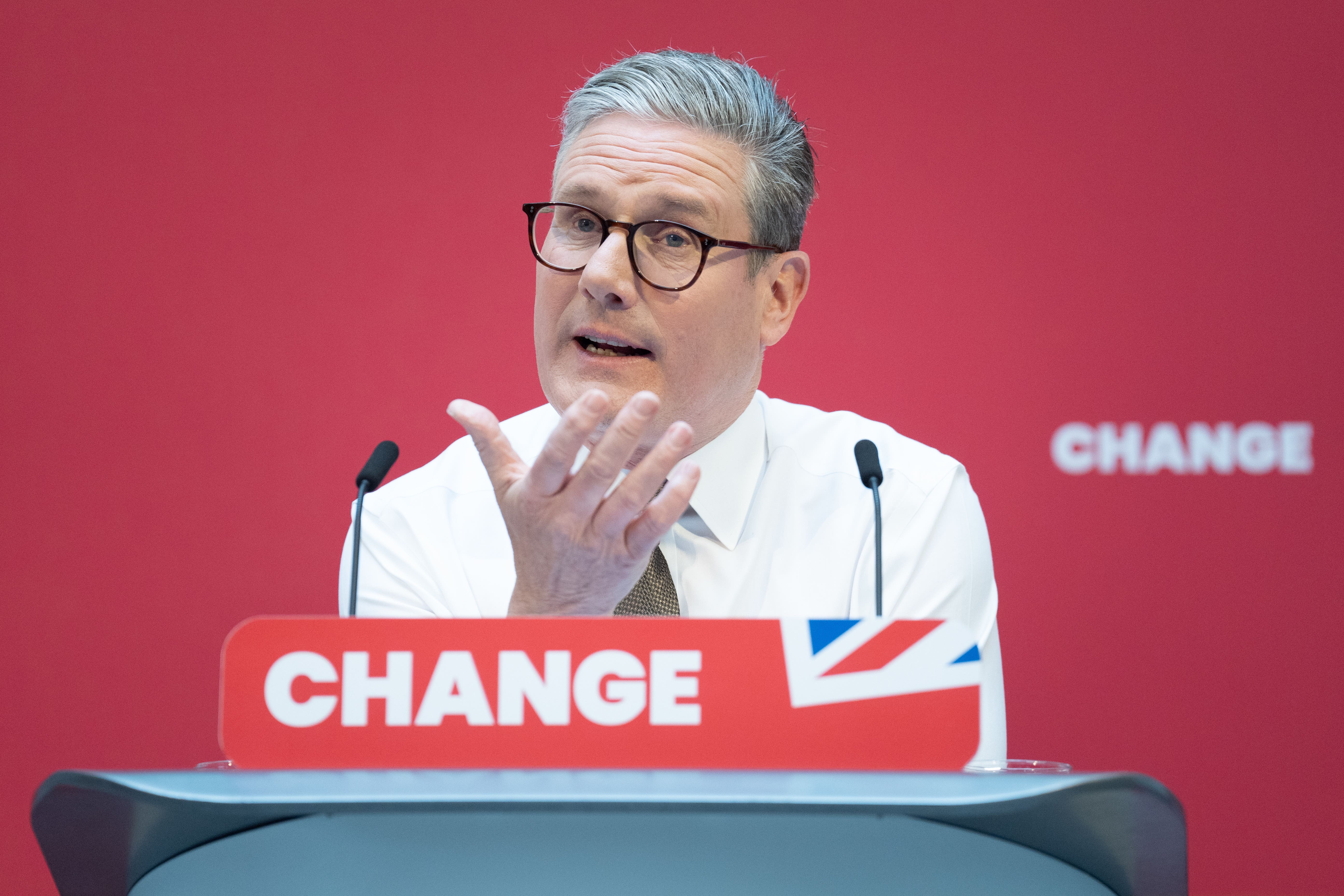Labour’s tax and spend plans ‘trivial’ and fail to address looming cuts – IFS
Economic experts have offered approval for some of Labour’s ambitions but warned its manifesto does not contain plans to avert public services cuts.

Tax hikes and spending increases within the Labour manifesto are “trivial” and do not address cuts already faced by buckling public services, economic experts have said.
Paul Johnson, director of the Institute for Fiscal Studies (IFS), suggested that delivering “genuine change” in Britain – Sir Keir Starmer’s flagship promise to voters – would require more funding than the policy document proposes.
Mr Johnson said some of Labour’s plans were better than “a shopping list of half-baked policy announcements” – an apparent reference to the Tories’ offering – but warned it would need to put “actual resources on the table”.
“And Labour’s manifesto offers no indication that there is a plan for where the money would come from to finance this,” he said.
In a response to Sir Keir’s launch of the policy document on Thursday, the IFS director said: “This was not a manifesto for those looking for big numbers. The public service spending increases promised in the costings table are tiny, going on trivial – the tax rises, beyond the inevitable reduced tax avoidance, even more trivial.
“On current forecasts, and especially with an extra £17.5 billion borrowing over five years to fund the green prosperity plan, this leaves literally no room – within the fiscal rule that Labour has signed up to – for any more spending than planned by the current government, and those plans do involve cuts both to investment spending and to spending on unprotected public services.”
He added: “This is a manifesto that promises a dizzying number of reviews and strategies to tackle some of the challenges facing the country. That is better than a shopping list of half-baked policy announcements. But delivering genuine change will almost certainly also require putting actual resources on the table.”
Unprotected departments – which oversee services such as prisons, courts and councils – are already facing cuts of up to £20 billion a year by the end of the decade under current plans, the IFS has warned.
Like the Conservatives, Labour has done little to row back on the spending cuts already pencilled in for the next Parliament. This, coupled with its pledge not to raise any of the main taxes, undermines the credibility of its promise to address failing public services
In its analysis of the spring Budget, it suggested these services would face real-terms cuts of 1.9% to 3.5% each year over the next Parliament.
Without extra money, they will suffer a squeeze that “looks inconsistent with this manifesto’s stated ambitions in these areas,” the think tank said.
“Like the Conservatives and the Liberal Democrats, Labour continues in a conspiracy of silence on the difficulties they would face.”
Given that the manifesto doubles down on a commitment to get debt falling in the fifth year of the forecast, “tough” trade-offs on tax and spend are highly unlikely to “simply disappear,” senior research economist Isabel Stockton said.
Labour’s plan to borrow £17.5 billion over five years to fund green energy projects makes that fiscal rule even harder to keep, she warned.
The Resolution Foundation, a think tank focused on reducing poverty and improving living standards, said the party had opted for a “cautious” stance on tax and spend.
It welcomed the “laudable” aim to improve workers’ rights, which includes a ban on “exploitative” zero-hours contracts, but said the boldness of the party’s employment policies went unmatched by its approach to the public finances.
In its response, the think tank said: “Their current stance sets the scene for a Parliament of further tax rises, hard to deliver spending cuts, and the risk that a weaker productivity forecast from the OBR at the next fiscal event could force an incoming Labour chancellor into fresh hard choices in order to meet their stated fiscal rule of getting debt falling by the fifth year of the forecast.”
Labour’s pledges to increase public spending largely lie in departments that are already protected, such as health and social care and education, the Resolution Foundation said.
Economic experts at the Institute for Government (IfG) also said the manifesto plans were not, alone, enough to ward off the cuts faced by some public services after the July 4 vote.
Chief economist at the institute, Gemma Tetlow, said: “Like the Conservatives, Labour has done little to row back on the spending cuts already pencilled in for the next Parliament.
“This coupled with its pledge not to raise any of the main taxes undermines the credibility of its promise to address failing public services.”
In its costings document, Labour confirmed plans to raise more than £7 billion in revenue from tax, including £5.2 billion from closing the “non-dom loophole” for wealthy foreigners living in the UK and cracking down on tax avoidance.
The party wants to spend this money on policies such as the creation of 700,000 more dental appointments and the recruitment of 6,500 teachers in key subjects.
The policy document focused on a goal of generating economic growth and making Labour the “party of wealth creation” but Prime Minister Rishi Sunak claimed it would result in “the highest taxes in history”.
Launching a manifesto which contained no new policy announcements on Thursday, Sir Keir denied he was being overly cautious to safeguard a double-digit poll lead and put his party back in power for the first time since 2010.
He said too many communities were currently “disregarded as sources of dynamism” because of “the toxic idea that economic growth is something that the few hand down to the many”.
“Today, we turn the page on that forever.”
He promised “stability over chaos, long term over short term, an end to the desperate era of gestures and gimmicks and a return to the serious business of rebuilding our country”.
Bookmark popover
Removed from bookmarks